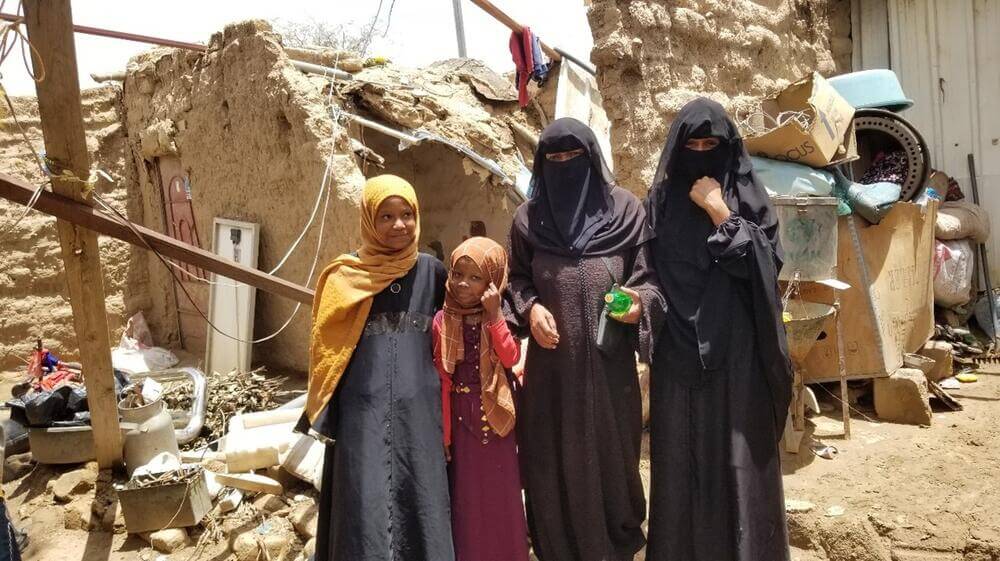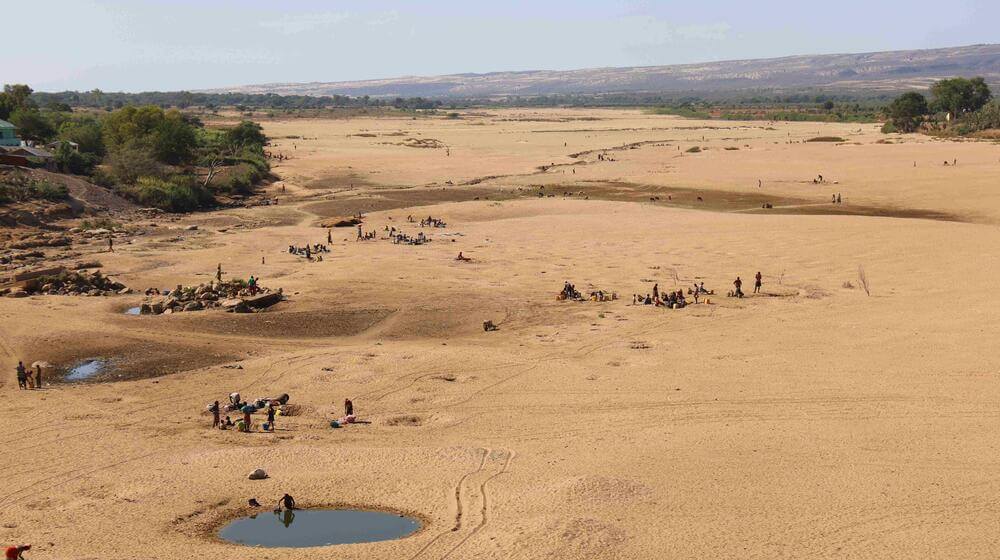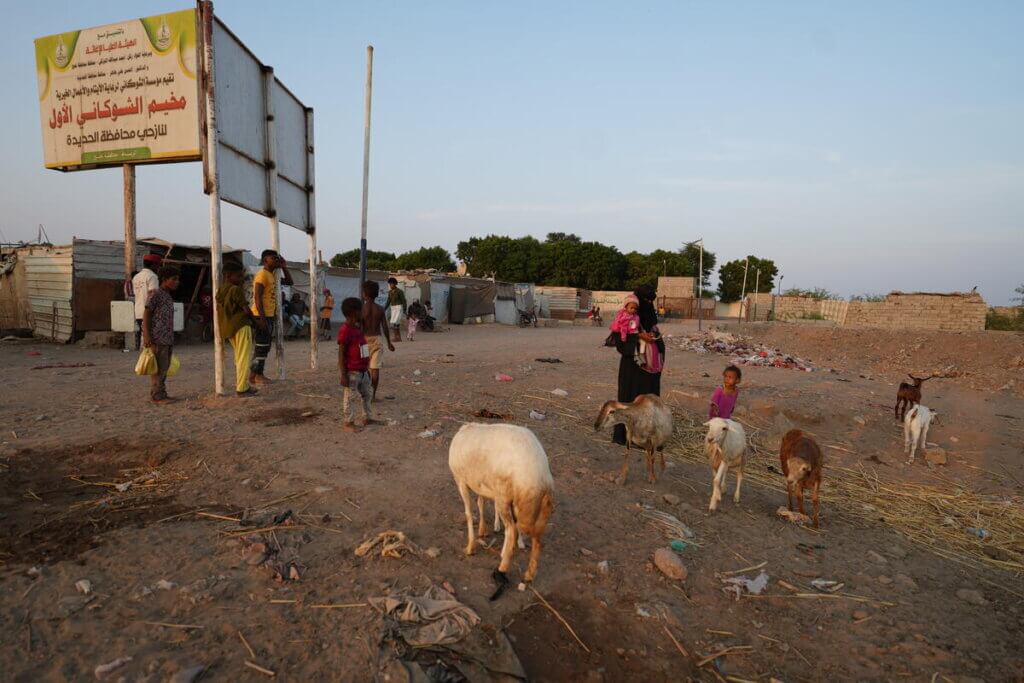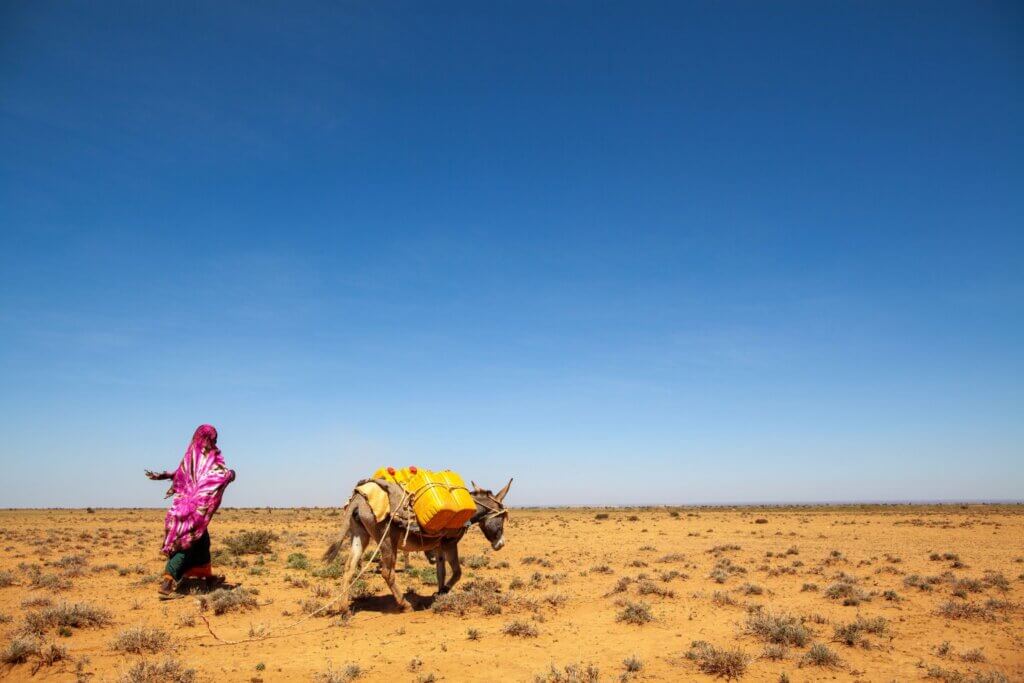Earth Day 2024: How the climate crisis is impacting women and girls

“I was in shock – what’s left to be destroyed in my life?” This is what Souad asked us as the mud hut that she and her seven children were residing in was washed away from a violent flash flood in Yemen spurred on by climate change.
Souad was one of the 4.5 million people in Yemen displaced from the raging conflict and devastating weather conditions. She had lost her husband to disease and, with him, any stable income. She was selling household utensils while her children collected plastic items for cash when the flood hit.
A UNFPA rapid response team was able to meet Souad and her family soon after the flood and provide cash assistance, shelter and counselling – but for millions of other women and girls at the mercy of climate disasters, they have not been as lucky.

A crisis for sexual and reproductive health
“Once the water supply is compromised, so is reproductive health,” environmental consultant Akilah Jaramogi shared with us.
Climate change is making food and water practically inaccessible in areas of the world. Droughts have stretched to impossible lengths, and with each rainless day, more crops shrivel up and more livestock die. Families have had to leave homes that have been within their families for generations – and displacement has heightened risks for women and girls.
“I used to cultivate cassava and other grains,” Pela from the Great South of Madagascar told us. The region faced its most acute drought in 40 years in 2022. “The children went to school while we were in the fields.”
But at just age 25, Pela hardly remembers that life anymore. “The droughts have changed many things. Now everything has become expensive — food, water. We had to stop schooling for two of the children.” Pela became the sole breadwinner after her husband fell ill. Now, she washes clothes or carries water for money, but it’s hardly enough.
“I am not even able to feed my four children, so giving birth to another child is not in my plans anymore.” Pela received family planning from UNFPA so she could avoid another pregnancy in the arid conditions.

But for women like Umm, who became pregnant during searing drought in Yemen, the climate crisis has turned pregnancy into a matter of life or death.
“One day, when I was returning from fetching water, I collapsed on the road. I was bleeding so badly that I knew I was going to lose my baby,” she shared with us. The story of her displacement is hauntingly similar to Pela’s:
“I come from a large family of farmers and herders who have lived off the land for generations. We had many sheep and cows, crops and fodder, and a well that provided us with clean water. But then everything changed. The rain became scarce, and we didn’t know when to plant and when to harvest. The crops failed, the well dried up, and the animals starved to death.”
Left with no other option, Umm and her family left their home for a displacement camp – which proved to be overcrowded and under-supplied. Malnourished, exhausted and heavily pregnant, she was still tasked with walking for miles to collect water. When she collapsed, a UNFPA team was able to save her life – but not her child’s.

Setting the clock back further for gender equality
“The climate crisis is having profound impacts on women and girls around the world. Climate-driven disasters are displacing them from their homes, putting family planning clinics, maternal healthcare and safe spaces out of reach,” UNFPA Executive Director Dr. Natalia Kanem said. “Without urgent measures, climate change will set back the clock even further on achieving gender equality.”
Globally, 21.5 million people have been displaced by climate change-related disasters. Without immediate action, that number may increase to 216 million by 2050.
Women and girls from the nations that have contributed the least to the climate emergency will continue to be harmed the most. Incidents of gender-based violence skyrocket during humanitarian crises, girls will continue to be pulled out of school first to either assist in household duties or be married to ease financial burdens, and pregnancy will continue to become more fraught with danger.
Urgent action must come now – or women and girls will continue to suffer.